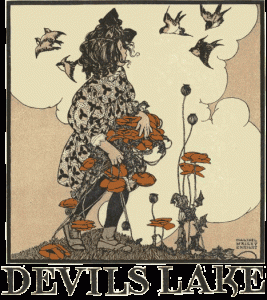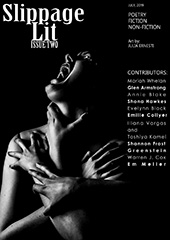 Devil’s Lake is published twice annually at the University of Wisconsin-Madison with a massive literary powerhouse masthead: Seth Abramson(Senior Editor), Lauren Berry (Senior Editor), Brittany Cavallaro (Editor in Chief), Kai Carlson-Wee (Design Editor/Assistant Fiction Editor), Louisa Diodato (Managing Editor and Webmaster), Josh Kalscheur (Poetry Editor), Christopher Mohar (Fiction Editor), Jacques J. Rancourt (Poetry Editor), Nancy Reddy (Review/Interview Editor), and Michael Sheehan (Fiction Editor). Devil’s Lake accepts submissions of poetry and prose online via Submissions Manager.
Devil’s Lake is published twice annually at the University of Wisconsin-Madison with a massive literary powerhouse masthead: Seth Abramson(Senior Editor), Lauren Berry (Senior Editor), Brittany Cavallaro (Editor in Chief), Kai Carlson-Wee (Design Editor/Assistant Fiction Editor), Louisa Diodato (Managing Editor and Webmaster), Josh Kalscheur (Poetry Editor), Christopher Mohar (Fiction Editor), Jacques J. Rancourt (Poetry Editor), Nancy Reddy (Review/Interview Editor), and Michael Sheehan (Fiction Editor). Devil’s Lake accepts submissions of poetry and prose online via Submissions Manager.
The inaugural Spring issue of Devil’s Lake includes:
Prose by Lucy Corin, Brian Evenson, John Holliday, PR Griffis, Andrew Malan Milward, and Ander Monson
Poetry by Erinn Batykefer, Brian Christian, Karin Gottshall, Anna Journey, Karyna McGlynn, Courtney Queeney, Martha Serpas, Alison Stine, Jeffrey Thomson, William Wright, and Mark Wunderlich


